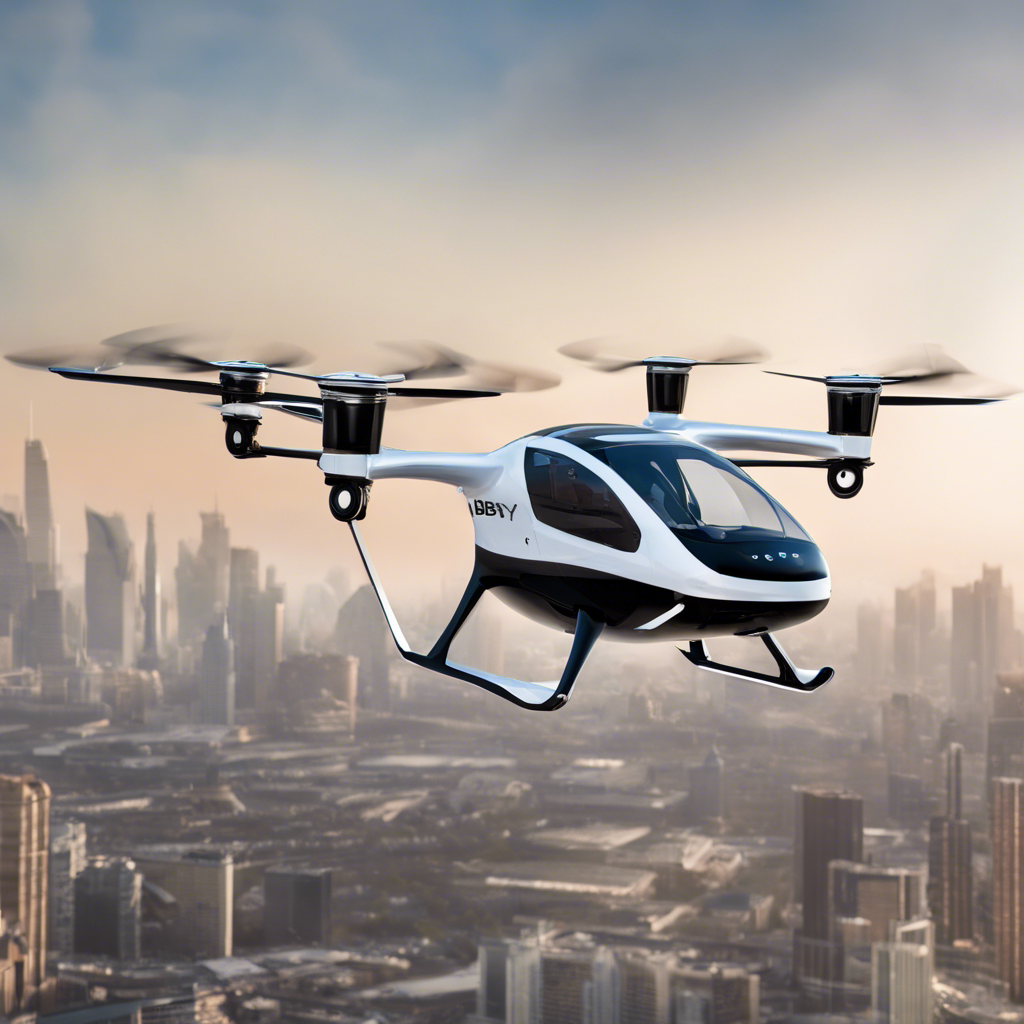Joby Aviation’s partnership with the Defense Innovation Unit (DIU) has paved the way for the development of electric air taxis and showcased how tailored acquisition processes can benefit nontraditional companies in navigating the bureaucracy of the Pentagon.
When Joby Aviation’s electric air taxi touched down at Edwards Air Force Base in California, it marked a significant milestone for the company and the U.S. Defense Department. This achievement was the result of a fruitful collaboration between Joby Aviation and the DIU, which aimed to determine the military utility of electric vertical-takeoff-and-landing (eVTOL) aircraft. The partnership not only helped Joby secure funding for testing but also attracted private investors and opened doors for further opportunities with the Defense Department. This article explores the journey of Joby Aviation and the DIU, highlighting the importance of their collaboration in advancing the electric air taxi industry.
Joby Aviation’s Early Partnership with the DIU
In 2016, Joby Aviation, a Santa Cruz-based startup, received a $20 million contract from the DIU to observe flight tests and gather data on the electric propulsion system of its eVTOL aircraft. At the time, Joby was primarily focused on the commercial market and had not yet considered partnering with the government. However, this initial contract not only provided funding for testing but also demonstrated to private investors that the Pentagon recognized the potential of Joby’s work. As a result, Joby attracted over $2 billion in private capital, which accelerated the development of its electric air taxi.
Expanding Opportunities with the Defense Department
Joby’s collaboration with the DIU opened doors to further opportunities with the Defense Department. In 2017, the company achieved a significant milestone by conducting the first full-scale flight demonstration of an eVTOL aircraft. This accomplishment made Joby the first company to successfully transition an eVTOL aircraft to flight. In 2020, the Air Force’s technology cell, AFWERX, granted Joby’s vehicle its first airworthiness certification through the Agility Prime program. These achievements positioned Joby as a key player in the electric air taxi industry and strengthened its relationship with the Defense Department.
Overcoming the “Valley of Death”
One of the significant challenges faced by innovative companies is the “valley of death,” the phase between project initiation and adoption by a military service. Joby’s partnership with the DIU helped the company navigate this challenging period. While the exact military applications of the eVTOL aircraft are still being explored, Joby is considering its potential for logistics and transportation missions. The tailored approach provided by the DIU and Agility Prime has allowed Joby to circumvent the valley of death and move towards bringing new technologies into existence.
The Evolution of the Defense Innovation Unit
The DIU was established in 2015 with the goal of connecting Silicon Valley technology companies with Defense Department users. Initially, it served as a “beachhead” in Silicon Valley, allowing the department to tap into commercial innovations while providing companies with insights into military needs. However, the organization faced challenges in its early years, including leadership issues and limited support from senior Pentagon leaders. Over time, the DIU evolved, proving its value through successful prototyping and technology acquisition projects.
DIU 3.0: Delivering Strategic Impact
Under the leadership of Doug Beck, DIU’s director, the organization is entering its next phase, known as DIU 3.0. This phase aims to deliver strategic impact by ensuring that the technologies DIU fosters can address real-world military problems and can be manufactured and fielded on a large scale. Beck emphasizes the need for collaboration, resources, and buy-in from various stakeholders to achieve this goal. DIU’s role in the Deputy’s Innovation Steering Group and the Replicator initiative demonstrates its growing influence within the department.
Near-Term Challenges and Future Reforms
While DIU has made progress in addressing bureaucratic and cultural challenges, more reforms are needed to sustain its success. Hiring the right talent and securing adequate funding are immediate priorities for DIU. The House Appropriations Committee has proposed a budget increase for DIU, allocating $1 billion in fiscal year 2024. However, experts argue that deeper reforms to the Pentagon’s budgeting process are necessary to fully leverage commercial technology and counter China’s advancements in this field. Reforms should focus on streamlining the acquisition process and allowing greater flexibility in integrating new capabilities.
Conclusion:
Joby Aviation’s partnership with the DIU has been instrumental in advancing the electric air taxi industry and demonstrating the benefits of tailored acquisition processes for nontraditional companies. The collaboration has not only secured funding for Joby’s testing and attracted private investors but has also provided a pathway for working with the Defense Department. As DIU enters its next phase, DIU 3.0, it aims to deliver strategic impact by addressing real-world military problems and ensuring the scalability of acquired technologies. However, sustained support, deeper reforms, and increased resources will be necessary to fully realize the potential of DIU’s mission and keep pace with global competitors.











